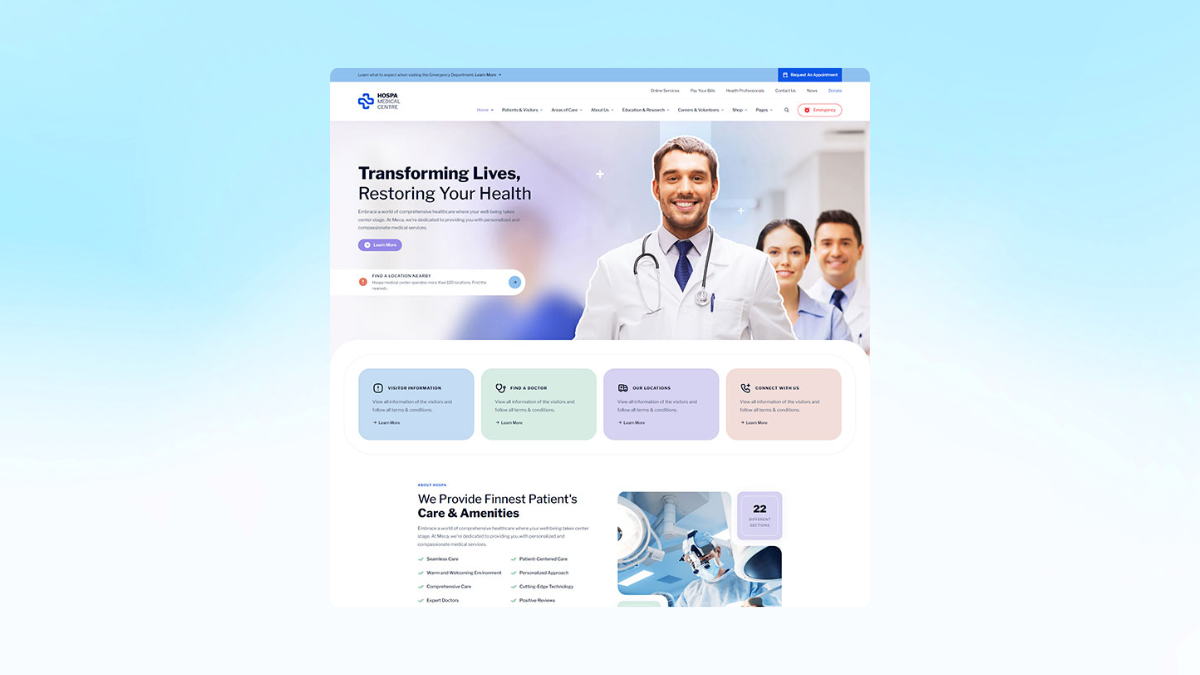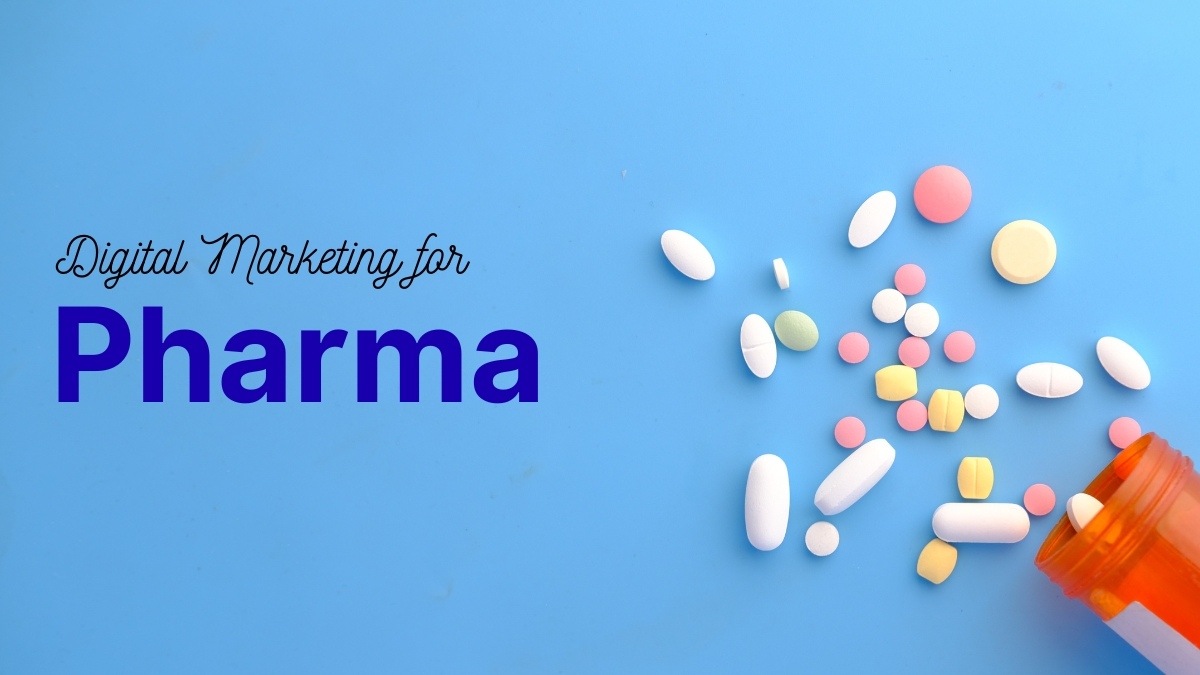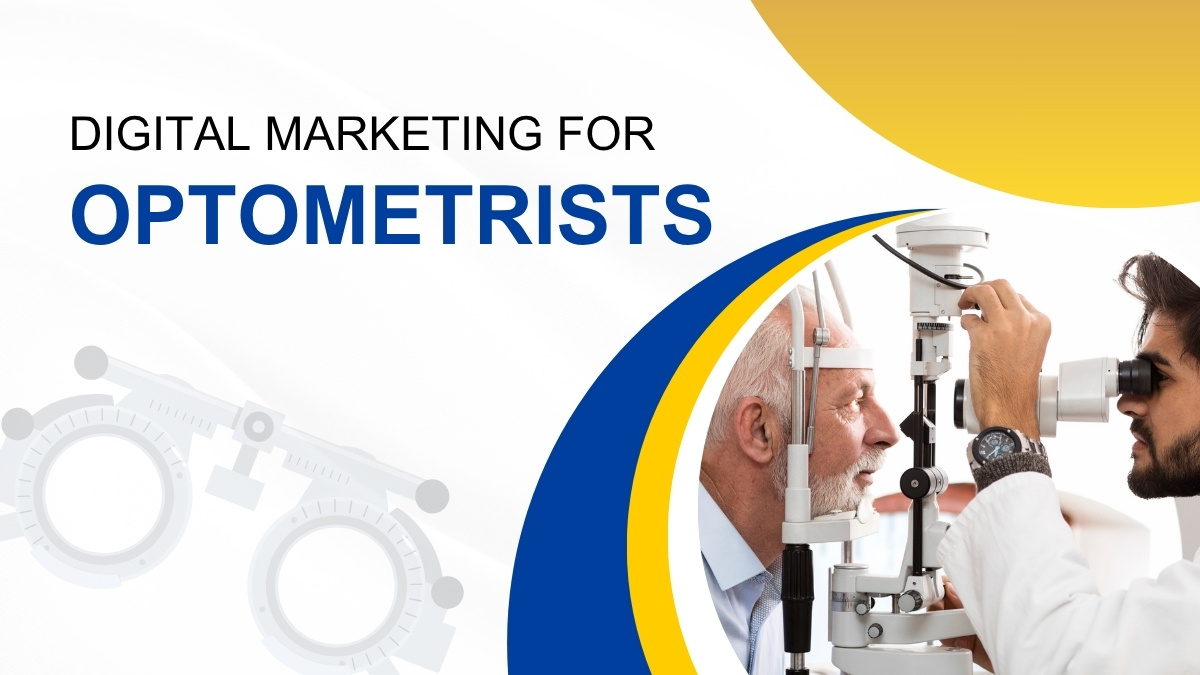
Digital Marketing for Hospitals
In the past, hospital marketing often relied on billboards, local newspaper ads, and physician referrals. While those methods still have their place, the way patients find and choose healthcare providers has changed dramatically. Today, their journey almost always starts online, with a simple search like "best orthopedic surgeon near me" or "emergency room wait times." This is where digital marketing for hospitals becomes not just an option, but a necessity.
If you're a hospital administrator or owner, the term "digital marketing" might sound complex or overwhelming. Don't worry. This guide is designed for you—the non-techie, the busy professional. We'll break down everything you need to know in simple, conversational language. We’ll explore why it’s so important, what strategies work best, how to get started, and even what it might cost.
By the end of this article, you'll have a clear roadmap to help your hospital connect with more patients, build trust in your community, and achieve sustainable growth.
Key Takeaways
-
Patients Are Online: The modern patient journey begins on Google, social media, and review sites. Your hospital needs to be visible and active in these digital spaces.
-
Trust is Everything: Digital marketing for healthcare is about building trust. It's done through helpful content, transparent reviews, and a professional online presence.
-
It’s More Than Ads: A strong strategy combines search engine optimization (SEO), content marketing, social media, and targeted ads to create a comprehensive patient acquisition and engagement system.
-
Start with a Great Website: Your website is your digital front door. It must be user-friendly, fast, and mobile-responsive.
-
Measure What Matters: Digital marketing provides clear data on what's working, allowing you to track patient inquiries, appointment requests, and your return on investment.
Why Hospitals Can't Ignore Digital Marketing

Think about the last time you needed to find a new service, whether a restaurant or a plumber. You probably pulled out your phone and searched online. Your potential patients are doing the same thing for their healthcare needs.
A strong digital presence helps you:
-
Reach Patients Where They Are: People are actively searching for health information and local providers online. If you aren't there, your competitors will be.
-
Build a Trusted Brand: By sharing expert articles, patient success stories, and health tips, you position your hospital as a leading authority. This builds confidence long before a patient walks through your doors.
-
Manage Your Reputation: Online reviews are powerful. Digital marketing gives you the tools to monitor what people are saying and respond professionally, showing that you care about patient feedback.
-
Promote High-Value Service Lines: Do you want to attract more patients to your cardiology, oncology, or maternity centers? Digital marketing allows you to target specific audiences interested in those services.
-
Educate Your Community: Your hospital is a pillar of community health. A digital platform is the perfect way to share public health announcements, wellness tips, and information about free screenings or events.
Launching Your Digital Front Door: The Hospital Website

Before you spend a single dollar on advertising, you need a solid foundation. Your website is that foundation. It's often the first interaction a patient has with your hospital, and it needs to make a great impression.
A successful hospital website must be:
-
Easy to Navigate: Can a worried parent quickly find the address for the pediatric emergency room? Can an older adult easily locate the phone number to schedule an appointment? The design should be simple and intuitive.
-
Mobile-Friendly: Over half of all web traffic comes from mobile devices. Your site must look and work perfectly on a smartphone screen. Test it yourself!
-
Fast-Loading: Patients are impatient. If your website takes more than a few seconds to load, they will leave and go to a competitor's site.
-
Secure: Since you handle sensitive health information, your website must be secure (look for "https://" in the URL). This is non-negotiable for patient trust and HIPAA compliance.
-
Action-Oriented: Include clear "calls to action" like "Find a Doctor," "Schedule an Appointment," or "View Wait Times" on every page.
Your website isn't just a digital brochure; it's a functional tool for your patients.
Core Digital Marketing Strategies for Hospitals

Once your website is in good shape, you can start driving traffic to it. Here are the most effective strategies for hospitals.
1. Local Search Engine Optimization (SEO)
What it is: SEO is the process of helping your hospital appear at the top of Google search results when people look for services you offer. Local SEO focuses on searches with a geographic intent, like "hospital in [Your City]."
Why it matters: When someone has an urgent medical need, they turn to Google. Ranking on the first page is critical for attracting these high-intent patients.
How to do it:
-
Google Business Profile: This is your most important Local SEO tool. Claim and fully optimize your free profile with your hospital's name, address, phone number, hours, and services. Encourage patients to leave reviews here.
-
Keyword Research: Identify the terms people search for, such as "ER near me," "maternity ward reviews," or "best knee replacement surgeon."
-
On-Page SEO: Include these keywords naturally on your website's service pages. Create separate pages for each key department (e.g., Cardiology, Orthopedics, Emergency Services).
2. Content Marketing
What it is: Creating and sharing valuable, relevant, and consistent content to attract and retain a clearly defined audience. For a hospital, this means providing helpful health information, not just sales pitches.
Why it matters: Content marketing builds trust. By answering common health questions through blog posts, videos, or downloadable guides, you establish your hospital's doctors as experts and caring providers.
Content ideas for hospitals:
-
Blog posts: "5 Signs You Might Need to See a Cardiologist," "What to Expect During Your First Mammogram."
-
Videos: A tour of your new maternity wing, an interview with a leading surgeon about a new procedure.
-
Patient testimonials: Success stories that highlight your quality of care (with patient permission, of course).
3. Social Media Marketing
What it is: Using platforms like Facebook, Instagram, and LinkedIn to connect with your community, share content, and build your brand.
Why it matters: Social media humanizes your hospital. It allows you to showcase your compassionate staff, share community involvement, and provide timely health updates. It’s a platform for conversation, not just broadcasting.
How to do it:
-
Show the Human Side: Post photos of your staff (with their consent!), celebrate hospital milestones, and share "behind-the-scenes" moments.
-
Share Health Tips: Create simple graphics with wellness advice or reminders for health screenings.
-
Engage with the Community: Respond to comments and questions promptly and professionally.
4. Pay-Per-Click (PPC) Advertising
What it is: PPC ads, like Google Ads, are paid advertisements that appear at the very top of search results. You only pay when someone clicks on your ad.
Why it matters: While SEO takes time, PPC can deliver immediate results. It's perfect for promoting high-priority service lines or getting the word out about a new facility or doctor.
How to use it effectively:
-
Geotargeting: Only show your ads to people within a specific radius of your hospital to avoid wasting money.
-
Focus on Service Lines: Run targeted campaigns for services with a high return, such as orthopedic surgery or cancer treatment.
-
Landing Pages: Send users who click your ad to a specific, relevant page on your website (a "landing page"), not your homepage. For an ad about knee surgery, the landing page should be all about your orthopedic department.
Estimated Costs for Digital Marketing
The cost of digital marketing can vary widely based on your hospital's size, goals, and location. Here’s a general breakdown to give you an idea.
|
Service |
Estimated Monthly Cost (for a small to mid-sized hospital) |
Notes |
|
Website Launch/Redesign |
$15,000 - $50,000+ (One-time) |
A complex site with many features will be on the higher end. Essential investment. |
|
SEO (Local & Organic) |
$2,500 - $7,500 / month |
This is for ongoing optimization, content creation, and link building. A long-term play. |
|
PPC Ad Spend (e.g., Google Ads) |
$2,000 - $10,000+ / month |
This is your direct payment to Google. It's scalable based on your budget and goals. |
|
Social Media Management |
$1,500 - $5,000 / month |
Covers content creation, posting, and community engagement. |
|
Digital Marketing Agency Retainer |
$5,000 - $20,000+ / month |
An agency often bundles several services together for a comprehensive strategy. |
Disclaimer: These are estimates. Costs can be higher in competitive urban markets or for large hospital systems.
Growth Tips for Long-Term Success
You've launched your website and started your marketing campaigns. What's next?
-
Focus on Patient Reviews: Actively encourage happy patients to leave reviews on Google, Healthgrades, and other platforms. Positive reviews are one of the most powerful marketing assets you can have.
-
Invest in Video: Video content gets more engagement than text or images. Start with simple "meet the doctor" videos or patient testimonials.
-
Build an Email List: Offer a valuable download (like a "Guide to a Healthy Heart") in exchange for an email address. Use email to send a monthly health newsletter, keeping your hospital top-of-mind.
-
Track Your Results: Use free tools like Google Analytics to see which pages on your site are most popular and where your traffic is coming from. This data tells you what's working so you can do more of it.
Final Thoughts
Digital marketing is no longer an optional extra for hospitals; it is central to patient acquisition, community engagement, and brand building. By moving beyond traditional methods and embracing a patient-centric digital strategy, you meet people where they are—online.
The process doesn't have to be intimidating. Start with the fundamentals: a great website and an optimized Google Business Profile. From there, you can layer in content, social media, and targeted ads. Whether you build an in-house team or partner with a specialized agency, the key is to start now. By investing in your digital presence, you invest in the health of your community and the future of your hospital.
Frequently Asked Questions (FAQs)
1. Is digital marketing for hospitals compliant with HIPAA?
Yes, absolutely. A knowledgeable marketing team or agency will understand the rules of HIPAA. This means avoiding the use of protected health information (PHI) in marketing materials and ensuring all technology (like contact forms) is secure. Patient testimonials should only be used with explicit written consent.
2. How long does it take to see results from digital marketing?
It varies by strategy. PPC advertising can generate patient inquiries within days. SEO, on the other hand, is a long-term investment; it typically takes 4-6 months to see significant movement in search rankings and organic traffic.
3. Should we handle marketing in-house or hire an agency?
This depends on your resources and expertise. An in-house team offers more control but requires hiring multiple specialists (SEO, content, ads). An agency provides immediate access to a full team of experts and advanced tools, which can be more cost-effective, especially for small to mid-sized hospitals.
4. What is the most important first step?
Claim and completely fill out your Google Business Profile. It’s free, has a massive impact on your visibility in local search and Google Maps, and is something you can start working on today.
5. How do we measure the ROI of our digital marketing?
You can track metrics like website traffic, keyword rankings, and social media engagement. More importantly, you can track conversions, such as phone calls from the website, appointment request form submissions, and clicks on "get directions." By assigning a value to each new patient, you can calculate a clear return on your investment.
30 minutes
Expert Consultation
Terms & Agreements
By booking a free 30-minute consultation, you agree to our terms, including scheduling, cancellation policies, and confidentiality. The session provides expert advice without guarantees of specific outcomes or results.






Leave a Reply
Your email address will not be published. Required fields are marked *